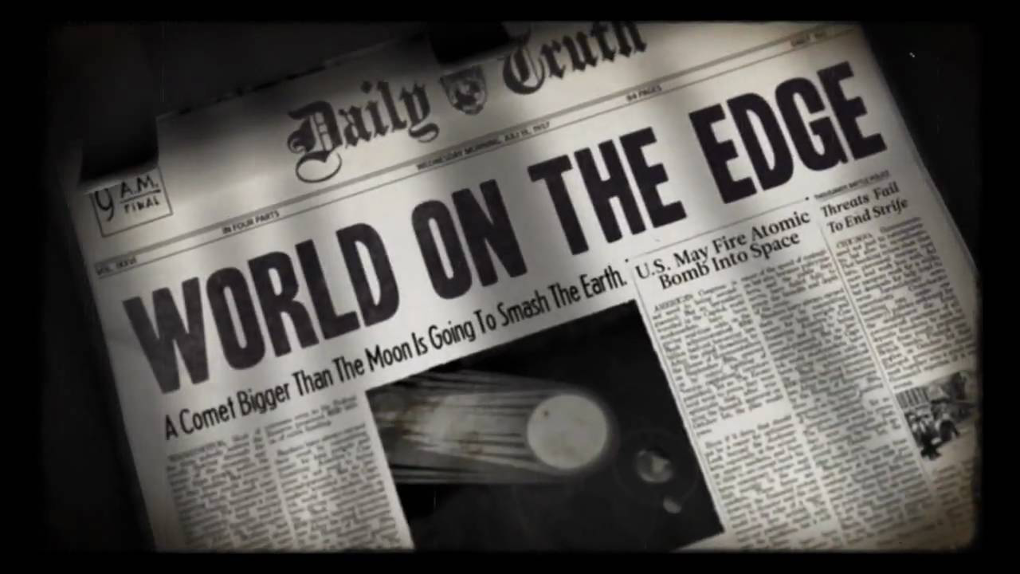Quick Hits
Daily brief research updates from the cognitive sciences

Many years ago I first heard the advice of “Don’t watch the news if you want to be happy”. The reason is that news is more often than not negative – I have written about this negativity bias previously – as the saying goes in news circles “if it bleeds, it leads”.
So, avoiding this dose of negativity is probably a good thing. However, since I first heard this decades ago the world has changed with access to news ever more present – it is not just on the television, it is on every device that we carry and at every minute throughout the day whether through formal news websites or through social media applications. Now it seems much harder than ever to avoid the negativity of the news.
But is this really negative?
McGaughlin et al. have just published a study which they conducted with 1’100 US adults. The found that about 16.5% had problematic news consumption. This is when the desire to follow the news becomes similar to addiction with constant checking of the news almost 24 hours a day and being pulled into a constant cycle of trying to relieve one’s anxiety by checking the news but then getting further pulled in.
It might seem obvious that this is not a good place to be mentally but is this what they found?
They did indeed. With 73.6% of those with problematic news consumption reported experiencing mental ill-being “quite a bit” or “very much”. This is compared to only 8% of other participants.
But on top of this 61% those with problematic news consumption also reported physical ill-being “quite a bit” or “very much” in comparison to only 6.1% of other participants.
Those are quite dramatic figures and the surprising outcome is that this is correlated so strongly to physical as well as mental well-being.
This shows that that bit of sage advice of avoiding the news seems to be very good advice but more than that avoiding the blackhole of continuous news consumption.
Unfortunately, there seems to be no easy way out of this. 24-hour news consumption is possible and very easy. Maybe a more positive reporting would at least help. I’m not holding my breath and I’ll stick to my general news avoidance strategy (while keeping myself informed).

Andy Habermacher
Andy is author of leading brains Review, Neuroleadership, and multiple other books. He has been intensively involved in writing and research into neuroleadership and is considered one of Europe’s leading experts. He is also a well-known public speaker, speaking on the brain and human behaviour.
Andy is also a masters athlete (middle distance running) and competes regularly at international competitions (and holds a few national records in his age category).
Reference
Bryan McLaughlin, Melissa R. Gotlieb, Devin J. Mills.
Caught in a Dangerous World: Problematic News Consumption and Its Relationship to Mental and Physical Ill-Being.
Health Communication, 2022; 1
DOI: 10.1080/10410236.2022.2106086
More Quick Hits
Behaviour at eight helps predict midlife health behaviours
A long-term study in Finland has tracked children from the age of eight until the age of 50 and a new analysis of the data, just published, has looked at some of the correlations between socioemotional behaviour in childhood and later life achievement and health...
Psychedelics and consciousness
Psychedelics change our conscious experience of the world – that is part of their attraction. Now a new study out of John Hopkins Medicine has analysed data on attributions of consciousness to other animals and innate objects by those using psychedelics and how this...
Lower smartphone usage increases wellbeing
So much has been said about smartphone usage in modern times. This ranges from some who say that they are destroying our brain to others who see they benefit our cognition by outsourcing cognitive heavy tasks like remembering lists of phone numbers – thereby freeing...
Modesty preferred for cooperative teams
In an age where it appears that many people are vying for self-esteem especially through social media, this research is interesting. Particularly in business contexts where cooperation is king. Research has previously shown that appearing to be wealthy increases...
Poverty shrinks babies’ brains
Quick HitsDaily brief research updates from the cognitive sciences couple of studies have just been released which look at the brains of newborns and young babies. The results are worrying for any society. Brain scans of newborn babies from...
Babies born with five from seven functional brain networks
In the 1950s the blank slate theory was the most prominent theory ascribed to babies. They are born blank slates and then their experiences allow them to develop their networks thoughts, associations, etc., and just about everything else. Though this theory is long...






